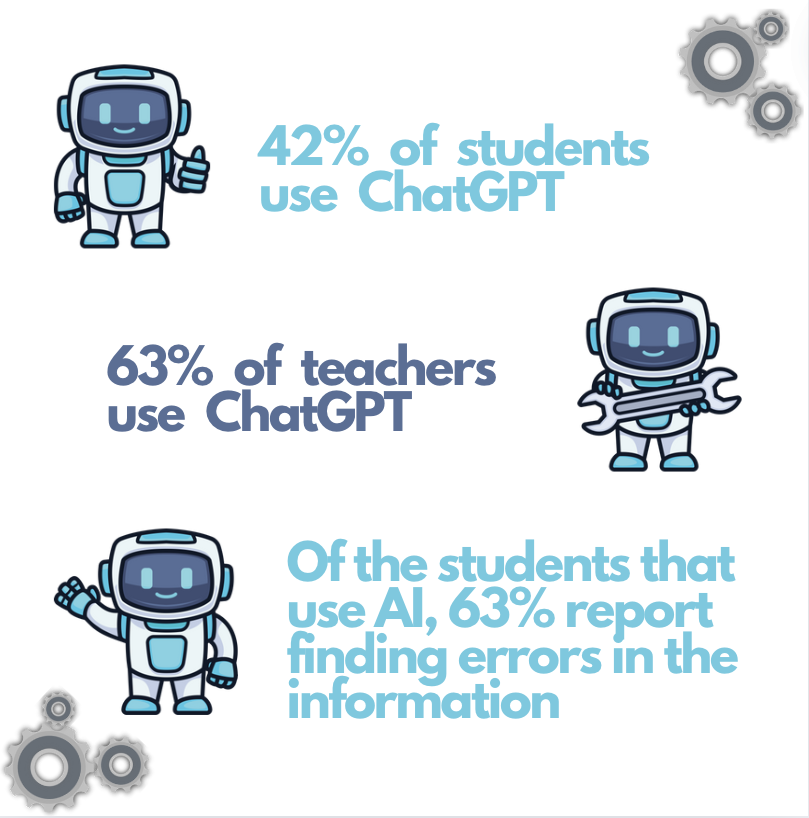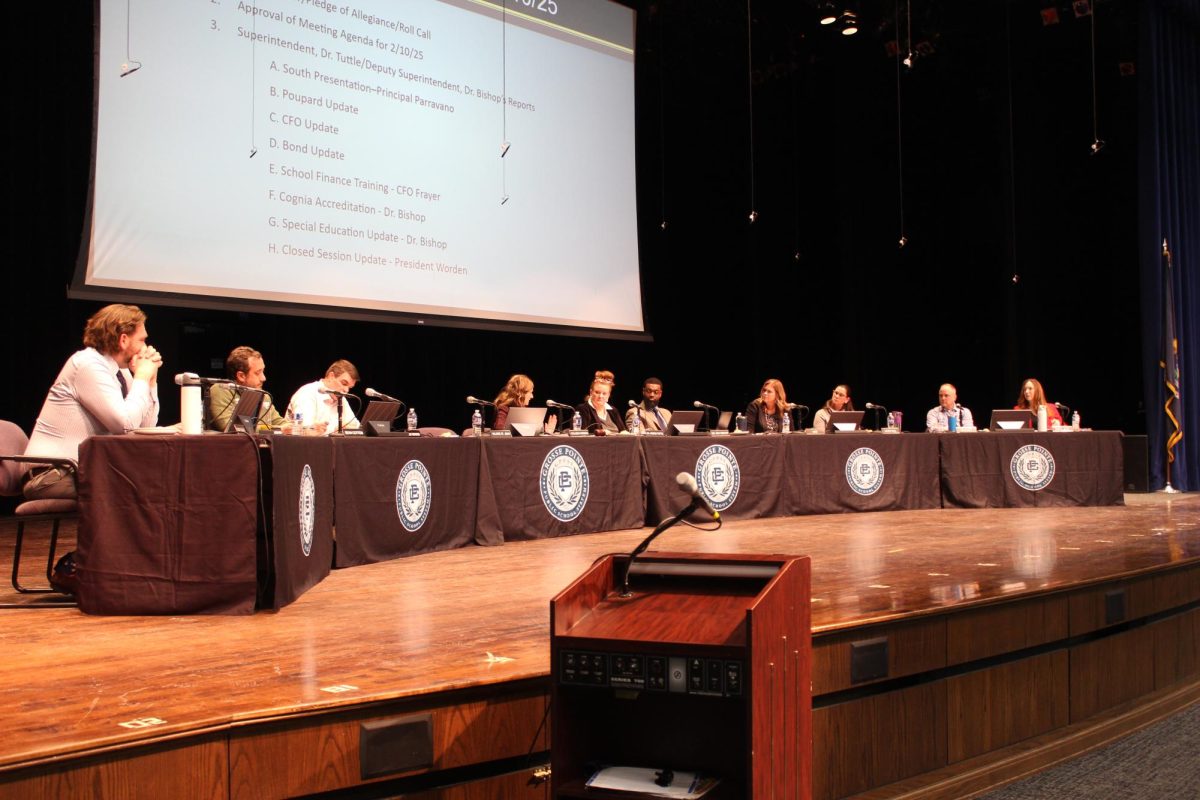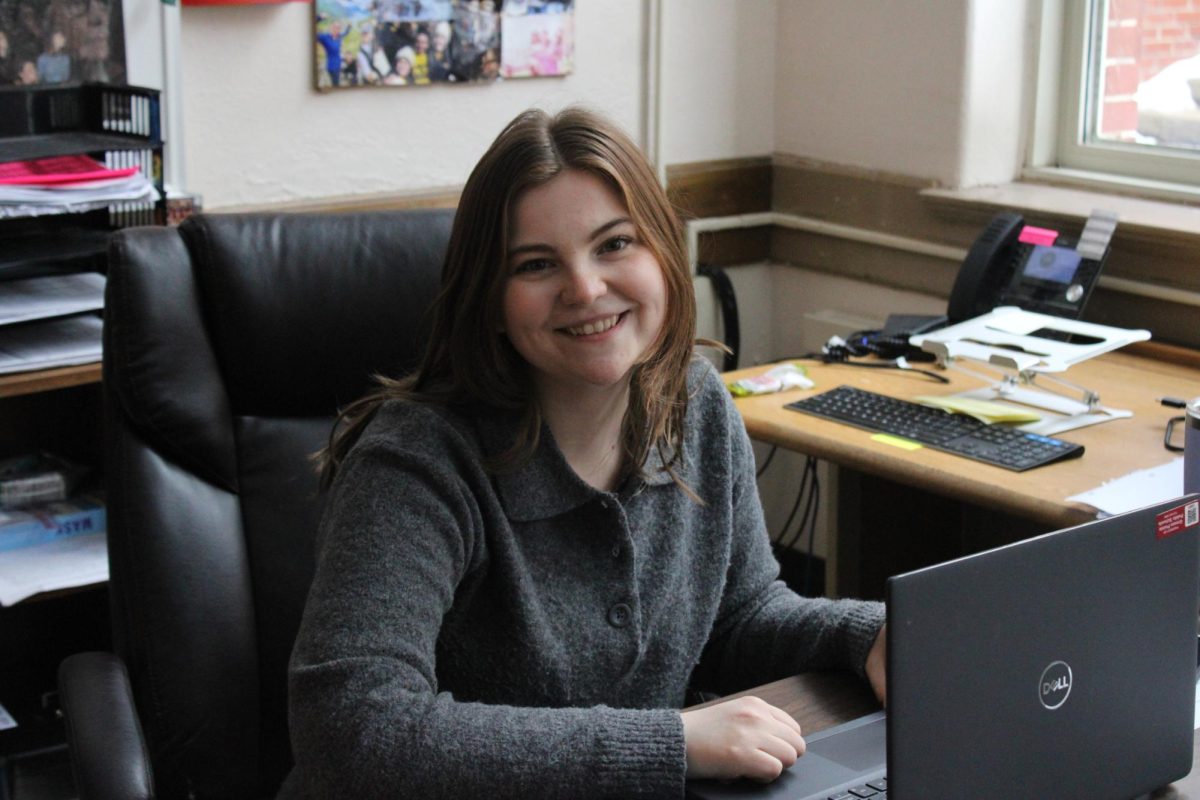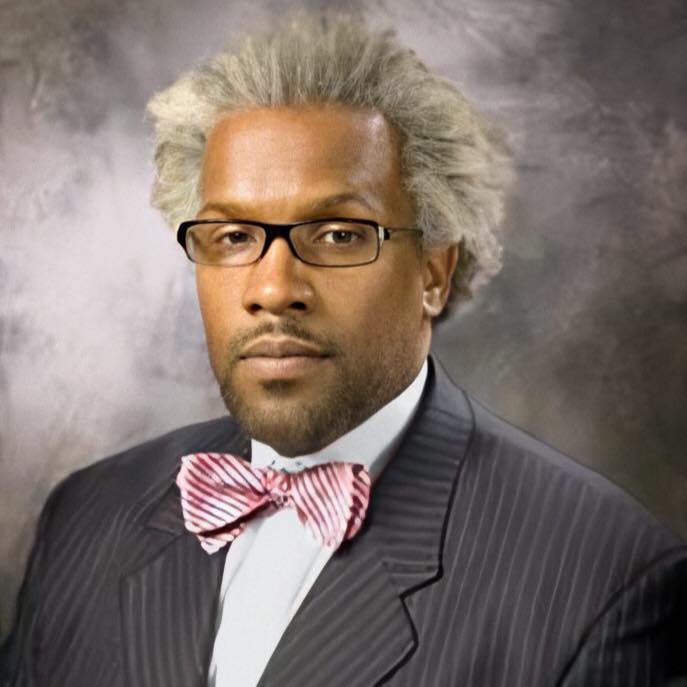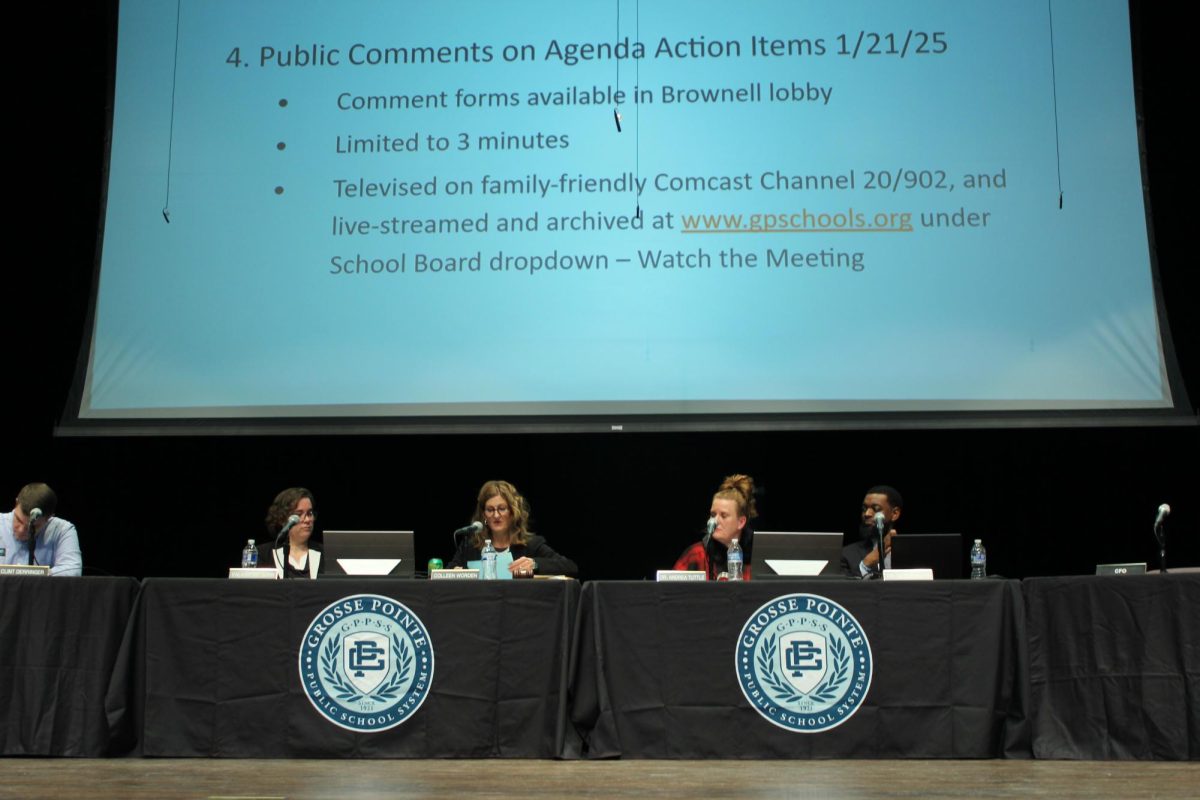As a generative tool, both smart and scary, Artificial Intelligence (AI) is rapidly evolving and seeping into students’ lives in a number of ways. From ChatGPT, to SnapChat, to a simple Google search, there is AI technology embedded into every day applications. Although this can be a helpful tool for students, it can also be a tempting way to disrupt academic integrity. As AI becomes more and more of an issue in educational settings, the Grosse Pointe Public School District is making attempts to get ahead of the game.
Last winter, the district formed a group called the GP AI learning committee, where the appropriate and inappropriate ways to use AI in schools was explored. They created a policy draft, structured by district attorneys, that was shared with leadership and high school departments as well. Input regarding the contents of the policy was received from several departments within the district, such as English Department Chair Kevin Cox.
”I think the policy should probably recognize what these different sites can and cannot do effectively,” Cox said. “For example, some of these programs and sites, like Chatgpt, simply create facts and create citations that [don’t] actually have links and evidence in real life. So it’s actually pretty dangerous because you can create something that looks authentic and reliable but is actually made up and not reliable.”
However, because the synthesization of technology is moving so quickly, it is hard for administrators to finalize a policy that is constantly evolving. Executive Director of Learning Technology, Dr. Chris Stanley, explains that the process for creating a district-wide policy is more complicated than you may think. It must first go through district attorneys to create the language, then passed on to a policy committee of community members. And only once it’s approved by them can it advance to the school board for approval, and then it may become an official policy.
“Artificial intelligence is changing how we learn,” Stanley said. “It’s changing how we do work. And I think it would almost be silly of us to say that’s not the case. So, how can we safely implement artificial intelligence? And when I say safely, I mean teaching students how to appropriately use it, and so that the human element is still important. I think it’s also important for teachers to feel comfortable with it as well.”
From the best intentions of administrators, the role of this policy would be to control the use of AI in education, but not permanently terminate it. However, some students feel that through this policy, AI might be regulated too tightly or banned altogether. Lillian Iacovoni ’25 believes that AI can be a helpful tool for generating facts and ideas, and favors taking a guideline approach so that AI may still be used appropriately.
“I don’t think there should be a districtwide AI policy, I think it should be a policy that varies from class to class,” Iacovoni said. “Because in some classes AI is really helpful and even used by the instruction of the teacher, so it really should just be up to the discretion of each class.”
A main priority of the district is the importance of student growth and student safety, which is why the district is apprehensive on purchasing a single AI program for the all Grosse Pointe schools. Different softwares are capable of collecting student data for third party uses, and it’s important to administrators that this policy helps to protect student’s privacy as well.
“We don’t really realize the benefit of technology, until it’s in the hands of users,” Stanley said. “We also don’t know the dangers of technology, until it’s in the hands of the users, that’s out there. I do see that there is going to be a lot of benefit to the personalization of learning with AI, and so I’m really excited about that. But, I think it’s also important for us to be cautious about what that means, too.”
And although a policy is still yet to be finalized, the universal academic integrity pledge does a good job of requiring students to take accountability for their actions in regards to the genuinity of their school work.
“Integrity at its fundamental level is doing the right thing even if you think you could get away with it,” Cox said. “Even if you think no one will know, it’s doing the right thing. And we just ask that students put in the time, effort, and energy to build their own skills before using AI without permission.”










































































